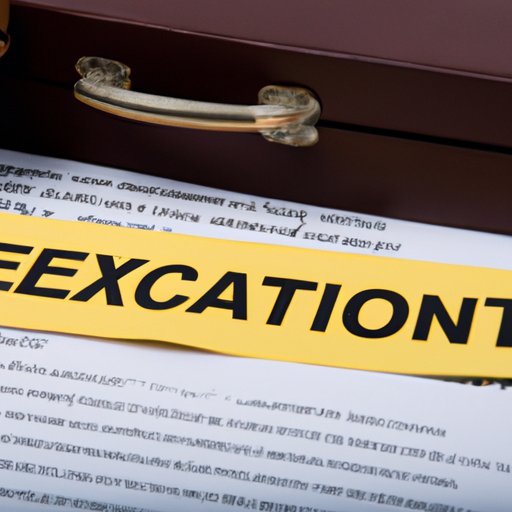Introduction
When someone passes away, they may choose to name a trusted individual to be the executor of their estate. An executor is responsible for managing the deceased person’s assets and ensuring that the wishes of the deceased are carried out. It can be a complicated and time-consuming process, but the executor has a legal and moral obligation to ensure that all tasks are completed in a timely and accurate manner.
Understand the Role of an Executor
As executor of an estate, you are legally obligated to handle the estate’s assets and liabilities according to the law. This includes understanding state laws regarding the handling of estates, identifying assets, filing necessary paperwork, paying off debts and taxes, and distributing assets to beneficiaries. It is important to understand the role and responsibilities before taking on this task.
Research State Laws
The laws that govern how an executor should handle an estate vary by state. It is important to research and understand the laws in the state where the deceased lived so that the executor can fulfill their obligations correctly. This includes understanding the various deadlines for filing paperwork and other requirements for handling an estate.
Identify Estate Assets
The executor must identify all assets owned by the deceased. This includes real estate, investments, bank accounts, and personal property. The executor must determine the value of each asset and decide how to distribute them according to the wishes of the deceased. This is often done by creating a list of assets and their values.
File Necessary Paperwork
Once the assets have been identified, the executor must file the necessary paperwork with appropriate government agencies and courts. This includes filing the will with the court, submitting tax returns, and applying for probate if necessary. The executor must also notify creditors of the deceased’s death and provide them with the necessary paperwork.
Handle Debts and Taxes
The executor is responsible for paying off any debts and taxes owed by the estate. This includes any outstanding loans, credit card bills, medical bills, and other debts. The executor must also pay any taxes due from the estate, including income taxes, estate taxes, and gift taxes.
Distribute Assets to Beneficiaries
Once all debts and taxes have been paid, the executor must properly distribute the assets to the beneficiaries according to the wishes of the deceased. This includes transferring ownership of any real estate, stocks, or other investments, as well as distributing the proceeds from the sale of any assets. It is important to keep detailed records of all transactions.
Conclusion
Being an executor of an estate is a big responsibility. It requires knowledge of state laws, attention to detail, and good organizational skills. It is important to understand the legal and financial responsibilities, identify assets, file necessary paperwork, handle debts and taxes, and distribute assets to beneficiaries. If you find yourself overwhelmed, it is best to seek professional help.
(Note: Is this article not meeting your expectations? Do you have knowledge or insights to share? Unlock new opportunities and expand your reach by joining our authors team. Click Registration to join us and share your expertise with our readers.)
